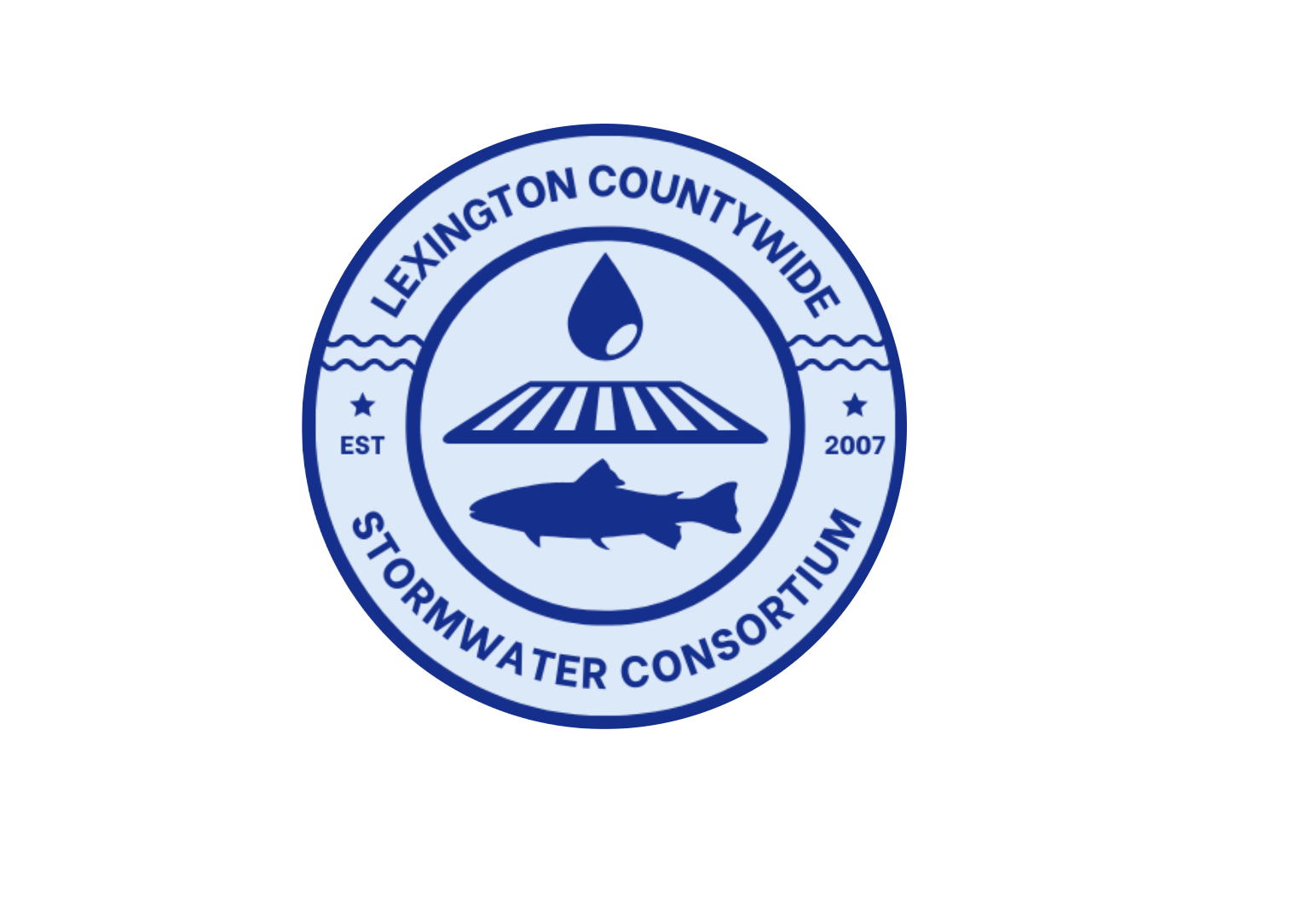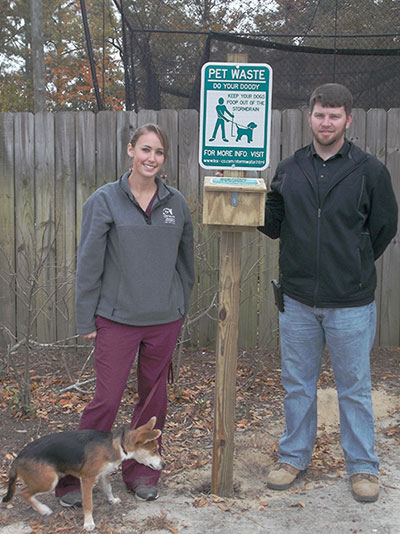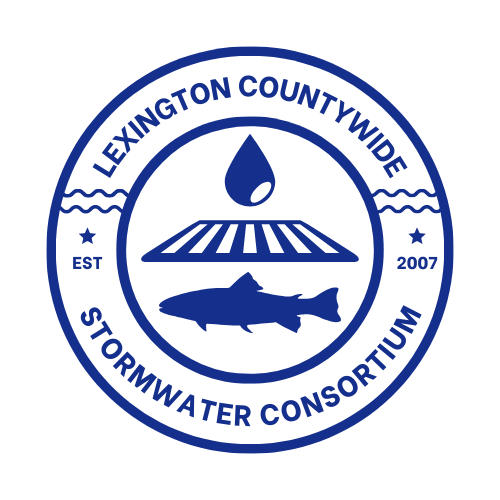
Trash the Poop
So, what's the problem?
Dog ownership can provide lots of love and companionship for many people. The inevitable part of having a dog is that they produce waste just like we do. Failing to pick up your dog’s waste is not only a public nuisance, it hurts the environment. The Environmental Protection Agency (EPA) estimates that the typical dog excretes 3/4 of a pound of waste everyday day... That's ~274 pounds per year!
Pet waste is full of a variety of pathogens including bacteria, viruses and parasites. When pet waste is left on your lawn or the side of the road, all of the pathogens in that pet waste are picked up by rainwater and subsequently washed down a storm drain. Water in storm drains is not processed before it empties. So your pup's fecal pathogens are being dumped into our local waterways. Playing or swimming in these contaminated waters can be very harmful to human health.
Waterways in Lexington County are impaired from fecal coliform bacteria. These waterways include Twelve Mile, Kinley, and Congaree Creeks. Although these impairments can’t be attributed solely to bacteria from pet waste, it does play a significant role.
Picking up your pet’s waste is the law!
Lexington County Animal Control Ordinance 17-01, Section 10-34(i) states:
"The owner of every pet shall be responsible for the removal of any excreta deposited by the pet on public walks and ways, recreation areas, or private property."
Many of towns and cities within Lexington County have similar ordinances. Violation of these ordinances can lead to citations and fines.
As a pet owner there are many things that you can do to reduce your pet’s impact on the environment. Some of these include:
1. Always pick up after your pet.
2. Install a pet waste bag station in your neighborhood or at your business. LCSC has instructions for building your own station.
3. If your animal’s waste collects in your back yard, consider setting up a pet waste composter to safely dispose of the waste. See the information at the bottom of the page for more information.
We make it easier to Trash the Poop
The Lexington Countywide Stormwater Consortium has pet waste stations available to home owners associations and dog-related business such as veterinarians, dog groomers, and pet stores that meet certain requirements. Each wooden pet waste stations are hand constructed and come with one roll (200) bags at no cost. Upkeep and maintenance of these stations such as emptying the waste bin, is the responsibility of the requesting party. The LCSC does not provide this service.
To apply to receive a pet waste station for your HOA or business, click here.
Pet waste composting basics
Composting your pet waste in your back yard is a simple and inexpensive way to reduce your pet’s impact on the environment and create a valuable amendment for your soil.
The benefits of composting your animal’s waste include:
- Removing raw waste from the environment where it can pollute local groundwater and streams.
- Destroying pathogens and producing a safe soil amendment.
- Eliminating the transport of waste to a landfill. This saves time, money, energy, and landfill space.
- Producing a quality soil additive that improves both the physical condition and fertility of the soil.
Building your pet waste composter
You can purchase a composter for your pet’s waste or build your own. Below are simple instructions on building your own at-home composter.
- Start with a garbage can and multiple drill holes in the sides. The size of the can depends on the size of your dog and the amount of poop they produce.
- Cut out the bottom of the can.
- Dig a hole in the ground that will fit the can. Locate the hole at least 15 feet from a vegetable garden, if applicable. If you have poorly draining soils you may want to make the hole big enough to surround the can with rocks or gravel to help with drainage.
- Fill the bottom of the hole with rocks or gravel for drainage.
- Insert the can so that it is a little higher that the soil level. If you have sandy soil, surround your can with filter fabric to prevent sand from caving into the can.
- Place the lid on top of your can. Feel free to decorate the lid to fit in with your landscape.
- Add the dog poop to the can, some septic starter, and water.
Voilà! You have your very own at-home pet waste composter! When composted properly, dog waste makes a safe and valuable soil additive. It is not advised that you use pet compost in fruit/vegetable gardens. If you’re concerned about the health risks of composting dog waste, here are a few considerations:
- Always wear gloves when handling animal waste. Wash your hands immediately afterwards.
- Don’t add animal waste from unknown dogs or dogs that appear sick.
- Do not allow children to play in areas where dog compost has been applied.
- Keep dog waste tools separate from other tools.
Currently, we are not offering pet waste stations. We plan to begin this program again in Fall 2024.

All Content Copyright © 2024 Lexington Countywide Stormwater Consortium. All rights reserved.